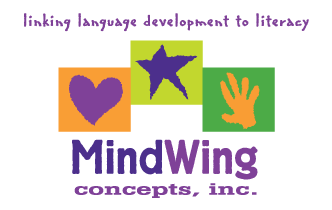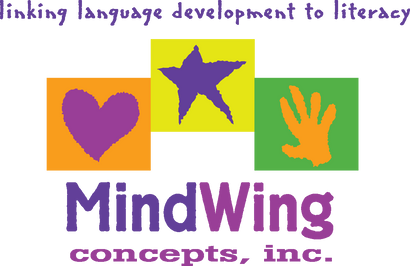Menu
-
- Home
-
About Us
-
The Approach
-
Linking Language & Literacy
-
MindWing Learning
-
Learning Resources
-
SHOP
-
Blog
-
- About MindWing
- Our People
- Contact Us
- Your Account
- Login
-
Spain (EUR €)

Maryellen Presenting at 7th Annual Social Thinking Providers’ Conference / FREE “The Worrywarts” lesson!
March 27, 2014 2 min read
Maryellen Rooney Moreau is presenting again at the Social Thinking Providers’ Conference in South San Francisco on June 20! Having presented with Michelle Garcia Winner in her four initial Traveling Providers Conferences (Boston, Dallas, Chicago, Minneapolis, 2013), we have been receiving much interest in our professional development opportunities and our many tools for narrative development and social communication. Narratives can be used to facilitate the building the gestalt or the “big picture.” Narrative ability is much more than a simple story retell. In fact, it is a window into oral language development, listening and reading comprehension, written expression and social communication through the communication of feelings and thoughts. Narrative development and its stages are present in language and cognitive research dating back to the late 1970s. Using our tools assists in informing instruction and designing intervention for students in general education, special education and students who are learning English as a second language. Because narrative is a universal mode of thought (Bruner), all students would benefit from explicit instruction. Students, particularly those who are having problems with receptive and expressive language, reading comprehension, social communication, problem solving, and writing, as well as students who are learning English as a second language, would most benefit, and have, throughout our 21-year history as a company.

In preparation for our next presentation with Social Thinking, Maryellen analyzed a book relating to Social Communication. The title of the picture book is The Worrywarts. She writes, “I chose this book at this time of year since it reminded me of springtime and the theme of desiring to get out of the house and ‘wander the world’ to enjoy its beauty. The title communicates that the characters will be those who worry about all kinds of things. Worry is a feeling. Sometimes worry signals the need to problem-solve. Worry brings about elaborate mental states as we humans wonder about the dreadful possibilities. Worry often leads to fear and even to panic. We often ask, ‘What if ____________ happens?’ We then ask, ‘What (will we do) then?’”
Leave a comment.
Comments will be approved before showing up.
